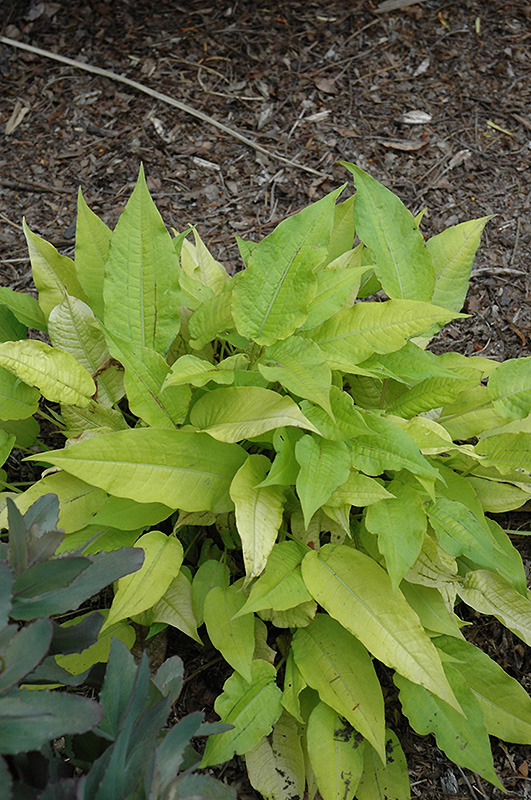>> Home
Golden Arrow Fleeceflower
Persicaria amplexicaulis 'Golden Arrow'
Height: 30 inches
Spacing: 24 inches
Sunlight:
![]()
![]()
Hardiness Zone: 4a
Other Names: Knotweed, Snakeweed, Polygonum
Description:
Narrow spikes of crimson tassles rise above clumps of yellow-green arrowhead shaped foliage all season; prefers moist well drained soil but is adaptable to dry as well; reportedly not invasive
Ornamental Features
Golden Arrow Fleeceflower has masses of beautiful spikes of crimson flowers rising above the foliage from early summer to early fall, which are most effective when planted in groupings. The flowers are excellent for cutting. Its attractive pointy leaves remain chartreuse in color throughout the season.
Landscape Attributes
Golden Arrow Fleeceflower is an herbaceous perennial with a ground-hugging habit of growth. Its medium texture blends into the garden, but can always be balanced by a couple of finer or coarser plants for an effective composition.
This plant will require occasional maintenance and upkeep, and is best cleaned up in early spring before it resumes active growth for the season. Gardeners should be aware of the following characteristic(s) that may warrant special consideration;
- Spreading
Golden Arrow Fleeceflower is recommended for the following landscape applications;
- Mass Planting
- General Garden Use
- Groundcover
- Naturalizing And Woodland Gardens
- Bog Gardens
Planting & Growing
Golden Arrow Fleeceflower will grow to be about 24 inches tall at maturity, with a spread of 30 inches. When grown in masses or used as a bedding plant, individual plants should be spaced approximately 24 inches apart. Its foliage tends to remain dense right to the ground, not requiring facer plants in front. It grows at a medium rate, and under ideal conditions can be expected to live for approximately 10 years. As an herbaceous perennial, this plant will usually die back to the crown each winter, and will regrow from the base each spring. Be careful not to disturb the crown in late winter when it may not be readily seen!
This plant does best in full sun to partial shade. It is an amazingly adaptable plant, tolerating both dry conditions and even some standing water. It is not particular as to soil type or pH. It is highly tolerant of urban pollution and will even thrive in inner city environments. This is a selected variety of a species not originally from North America. It can be propagated by division; however, as a cultivated variety, be aware that it may be subject to certain restrictions or prohibitions on propagation.
